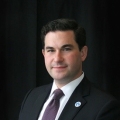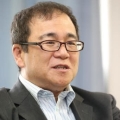Drones, Bots, and Smart Weapons: Artificial Intelligence and Asian Security
VIEW EVENT DETAILSThe race to master artificial intelligence (AI) is underway, particularly in the United States and China. But there are questions about how these new technologies may be used, especially in the security sphere. These concerns are increasingly acute in the Asia-Pacific, a region home to six of the world’s ten largest militaries and some of the world’s most advanced artificial intelligence research and development. Join the Asia Society Policy Institute for a panel discussion that will explore a number of questions: How are artificial intelligence and AI-enabled capabilities changing the security landscape in Asia? What risks do autonomous systems pose to Asia-Pacific stability? And what steps can the United States and like-minded partners take to create clearer rules of the road around the research and employment of these new technologies?
Speakers:

Ambassador Amandeep Singh Gill (Keynote Speaker, via live videofeed) is the Permanent Representative of India to the United Nations Conference on Disarmament and the Chair of the United Nations Group of Governmental Experts on Lethal Autonomous Weapons Systems. He has served in the Disarmament and International Security Affairs Division of the Ministry of External Affairs of India and on the United Nations Secretary General’s panel of experts on small arms and light weapons and missiles. He is a frequent commentator on the subject of security and emerging technologies, including a recent Raisina Dialogue panel on the paradoxes of robotic warfare.

Joshua Marcuse is the Executive Director of the Defense Innovation Board, which advises senior leaders in the U.S. Department of Defense on accelerating innovation. He also serves as an Advisor on Innovation to the Deputy Chief Management Officer, focusing on building innovation capacity across the Department's workforce, and harnessing digital technologies such as data, cloud, machine learning, and artificial intelligence. He was previously the Senior Adviser for Policy Innovation in the Office of the Under Secretary of Defense for Policy, and worked at Booz Allen Hamilton, the Center for Strategic & International Studies, and the Council of Foreign Relations.

R. Shashank Reddy is a researcher at Carnegie India, where he focuses on the implications of emerging technologies for Indian and international security. He is a member of the Indian Ministry of Defense's task force on Artificial Intelligence and Defense, and is also on the International Panel on Regulation of Autonomous Weapons, based in Berlin. He has authored numerous articles and reports on emerging technologies, including India and the Challenge of Autonomous Weapons.

Heather Roff is an expert with the Leverhulme Center for the Future of Intelligence at the University of Cambridge. She is also working on projects related to the ethics of artificial intelligence for Google DeepMind. Her research focuses on law, policy and the ethics of emerging military technologies, in particular, their intersection with the conduct of war and civilian protections. She has testified before the United Nations Convention on Conventional Weapons as an invited expert on autonomous weapons. She is a co-author of the recent report, The Malicious Use of Artificial Intelligence: Forecasting, Prevention, and Mitigation.

Heigo Sato is a Professor at Takushoku University and an expert on Japanese security, nonproliferation and emerging technologies. He has served as Special Adviser to Foreign Minister Katsuya Okada on disarmament and nonproliferation and was a panel member at the UN Group of Governmental Experts on Lethal Autonomous Weapons Systems (LAWS). He also serves as the Vice President of the Japan Association for International Security and Trade.

Lindsey Ford (Moderator) is the Director of Political-Security Affairs for the Asia Society Policy Institute, as well as ASPI’s inaugural Richard Holbrooke Fellow and Deputy Director of the Washington D.C. Office. Her expertise includes U.S. national security, Asian regional architecture, and maritime security issues. Prior to joining ASPI, she served in a variety of roles at the U.S. Department of Defense, where she received the Award for Exceptional Civilian Service in 2014. Most recently, she was the Senior Adviser to the Assistant Secretary of Defense for Asian and Pacific Security Affairs.
Event Details
Asia Society Policy Institute
1779 Massachusetts NW
Root Room, 2nd Floor
Washington, DC 20036